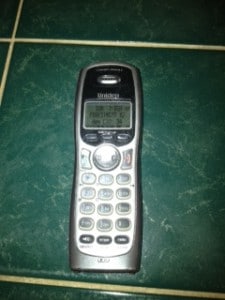 Real debt collectors are bad enough. They ring your phone all day and most are extremely unpleasant to deal with. Now we find out that there are fake debt collectors who are trying to squeeze victims out of their hard earned money.
Real debt collectors are bad enough. They ring your phone all day and most are extremely unpleasant to deal with. Now we find out that there are fake debt collectors who are trying to squeeze victims out of their hard earned money.
The Wall Street Journal recently reported that United States Federal authorities have cracked down on a phone scam where Indian call centers were used to swindle millions of dollars out of Americans. The Journal reports that these fake debt collectors harassed Americans with threats of arrest, job loss and/or collection lawsuits. What really shocks me is that they allegedly posed as law enforcement officers.
The Federal Trade Commission has published a great guide on how handle a situation where you receive a call from a debt collector.
When you receive a phone call from a debt collector you should never give them:
- your social security number
- bank account numbers
- credit card numbers
- your birth date
- or any other personal information.
You should request the following information from debt collector:
- his name
- his company
- the mailing address for his company
- his phone number
In addition, the Federal Trade Commission says that you should refuse to discuss any debt until you receive a written “validation notice” in the mail.
As word gets out about the fake debt collectors, legitimate collection efforts by phone will become extremely difficult in the future for almost every company. With the advent of caller identification, may people don’t answer their phone unless they recognize the number. When I go home, I never answer the home phone period. It’s never for me. Almost everyone I know calls me on my cell.
Even when the consumer recognizes the name of the company, they should still request written verification from the caller.
However, just because a collector gives an address and name does not necessarily mean they are legitimate. While giving a name and address makes it easier for the FTC to prosecute the crooks, it does not stop them from trying to steal your money.
I remember when the foreclosure crisis first started, there were many crooks that had no problem giving addresses to unsuspecting consumers who thought they were paying for a loan modification of their home mortgages.
What will the scammers think of next?
Other Posts:
3. How much does it cost to file?
